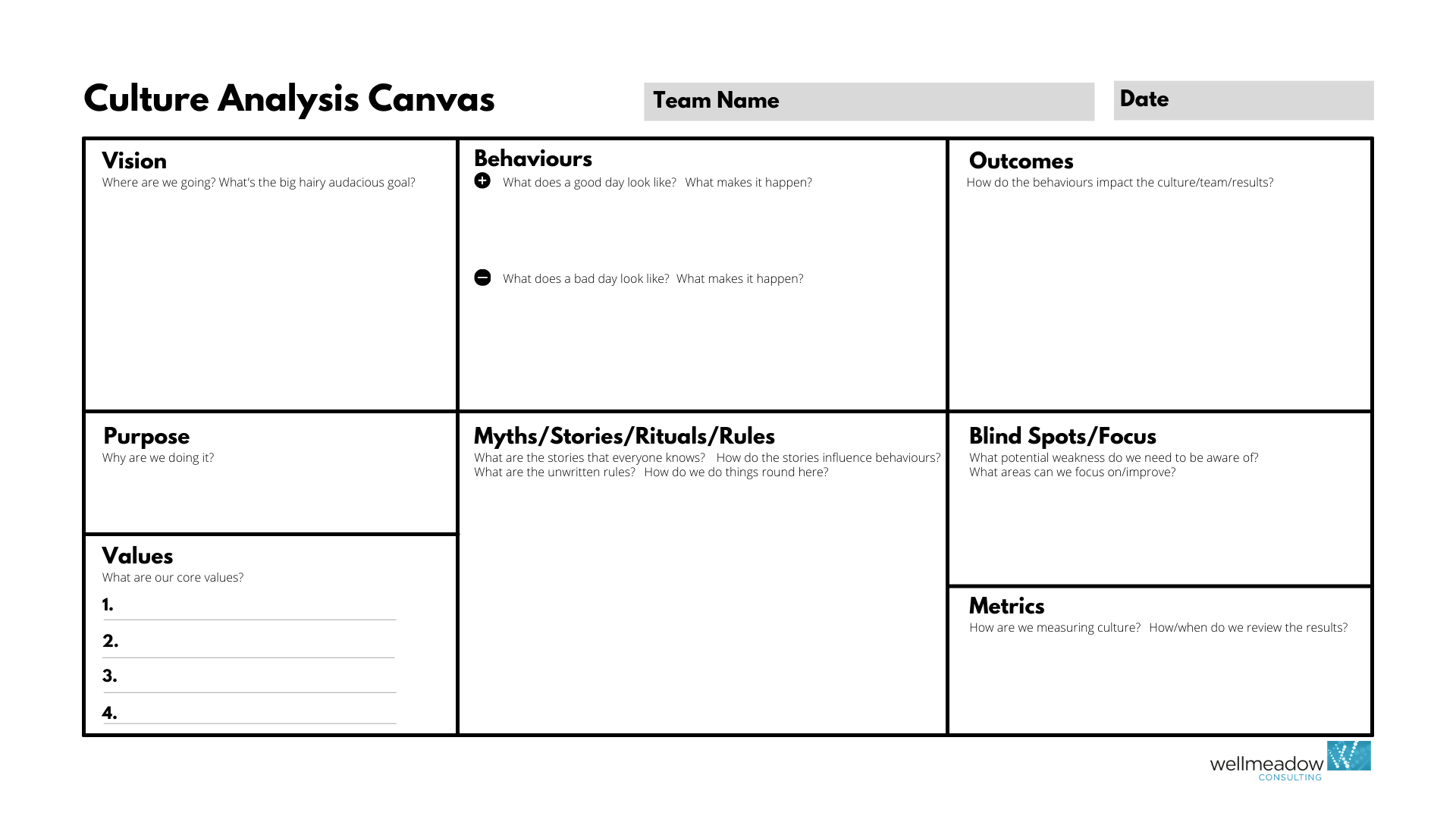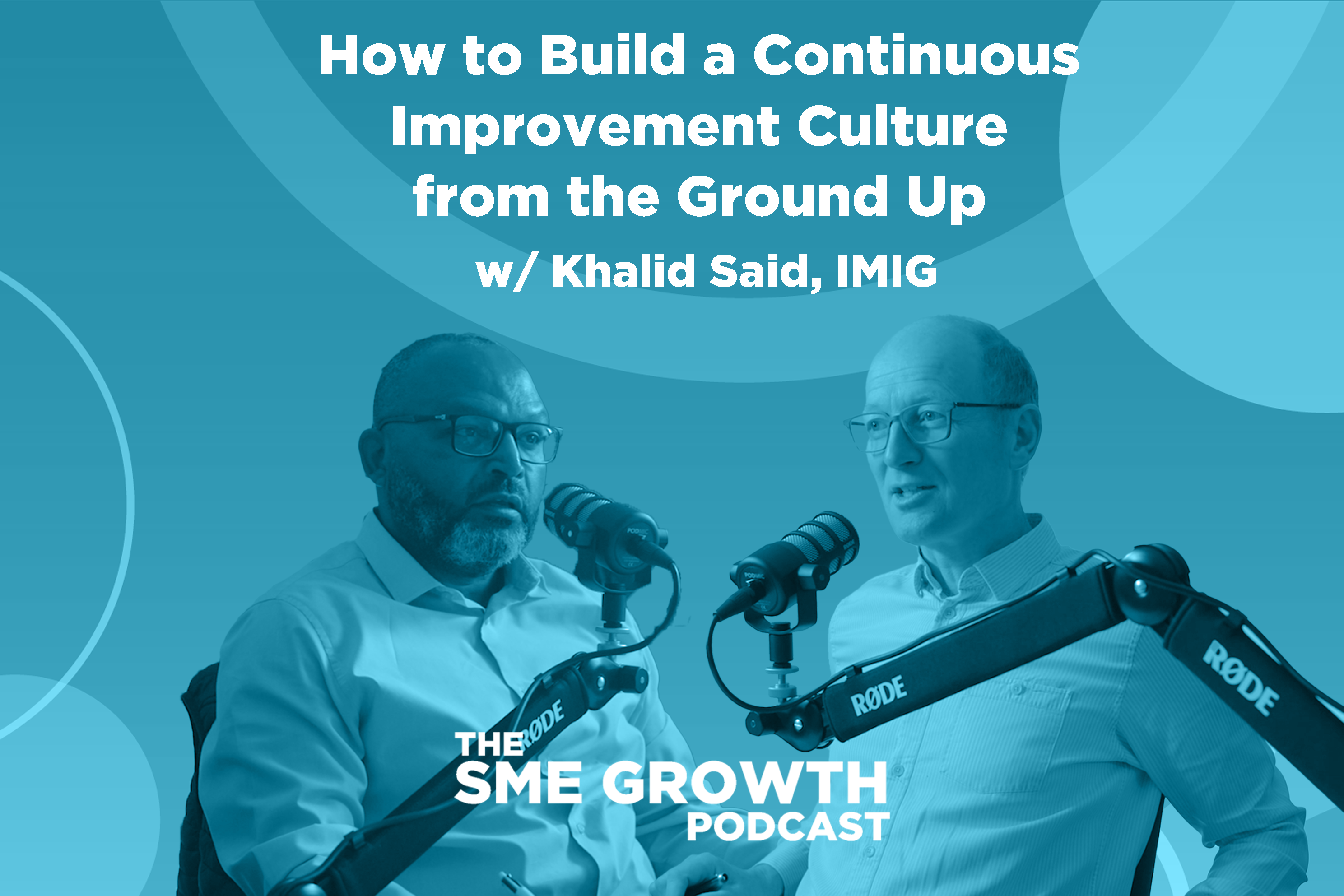Motivate to Cultivate
Motivate your employees so you can reduce disengagement and increase the quality of your output.
Wellmeadow supports ambitious companies with business growth enabled by HubSpot.
We've worked with over 100+ businesses at board-level across sectors such as automotive, manufacturing, healthcare, legal, SaaS, and professional services.

%20(A4).png?width=71&height=100&name=portrait%206-box%20model%20diagram%20(1170%20x%207051%20px)%20(A4).png)

-1.png?width=70&height=70&name=Square%20(1)-1.png)
3 min read
Richard Buckle : Updated on January 20, 2023

Your organisation's culture and values are integral to everything you do. They could be considered as the organisation's DNA. An analysis of your organisation's culture can help to support your recruitment process, helping you hire the best candidate in the interview process.
This is the first blog in the series of extracts from our downloadable e-book "Is it time to recruit well?".
What is company culture? As a basic definition, it can be defined as ‘how we do things around here’. It drives the purpose, values and behaviour across an organisation.
Our experience of recruiting senior leaders has taught us that understanding an organisation’s culture is absolutely critical to defining the key behaviours that will guide the conduct of the person undertaking the role.
So if you don’t already have a clear picture of the vales of your company, it’s worth taking some time to understand them before you make a strategic recruitment decision.
Using a culture mapping framework can help to guide the process of gaining a deeper understanding of "what really goes on around here". It has been said that culture eats strategy for breakfast, so if the role is in anyway strategic, make sure the culture is understood.
More For You:
Tackling unconscious bias in recruitment
How to design and run great evaluation interviews
Defining job roles to attract talent
If you don’t already have a clear picture of the values of your company, it’s worth taking some time to understand them before you make a strategic recruitment decision. Thinking about organisational culture encompasses quite a few different facets. There is no right or wrong way to go about discovering, identifying, or documenting your culture.
However, it can be helpful to have a framework or template to work from to help get things started.
Below is our 'Culture Analysis Canvas' to help get you started. It's designed to be a high level overview so you may feel like you need to deep dive certain areas to get better understanding of what's going on.
The Culture Analysis Canvas is a tool that can be used to help you get a better understanding of your organisation's culture.

The vision asks the questions of where are we going and what's the goal that the organisation is seeking to achieve (10-20 year timeframe).
The purpose of an organisation seeks to address why it exists. For example, Tesla's purpose is to accelerate the world’s transition to sustainable energy.
An organisation's values will be the guiding principles which set the standard for behaviour and create a positive workplace culture. For example, one of Disney's values is "a fanatical attention to consistency and detail".
The behaviours of a company helps to identify how members of the organisation act and ideally should embody the values. The types of behaviours may vary per role but there will be an underlying ethos that forms the foundations of how people act/interact towards each other.
Behaviours can be influenced by the myths, stories, rituals, and rules (often unwritten).
Is there a story that always gets told to new starters about a particular event? At Wellmeadow, we always tell new starters a story about how we helped a client set up an online store to win a deal that they were going to walk away from. The story helps to embody our values and behaviours.
Based on the behaviours, rules, and values, what outcomes do you observe? Are people engaged with their work? What does retention look like? Do people trust the leaders? Is there an impact on the top/bottom line?
It can also be helpful to think about your blind spots/areas of focus. Asking staff or customers/suppliers can be a good way to get this information. It also shows a level of transparency and an acknowledgment of wanting to do better.
Finally, what metrics have you got in place to ensure that you encourage a mindset of continuous development with respect to your organisation's culture?
A strong organisational culture will make your recruitment process more robust, and ultimately, more successful.
In our next blog, we'll provide insights on the importance of the candidate experience.
For more information on how to recruit more successfully in your organisation, or to get a copy of the Culture Analysis Canvas, download our FREE eBook ‘Is It Time to Recruit Well? '

Motivate your employees so you can reduce disengagement and increase the quality of your output.

Take a leaf out of the multi-national playbook and stand out against your competition as employers of choice.

Building a continuous improvement culture from the ground up can be a challenge, especially if it focusses on the tools rather than the people.